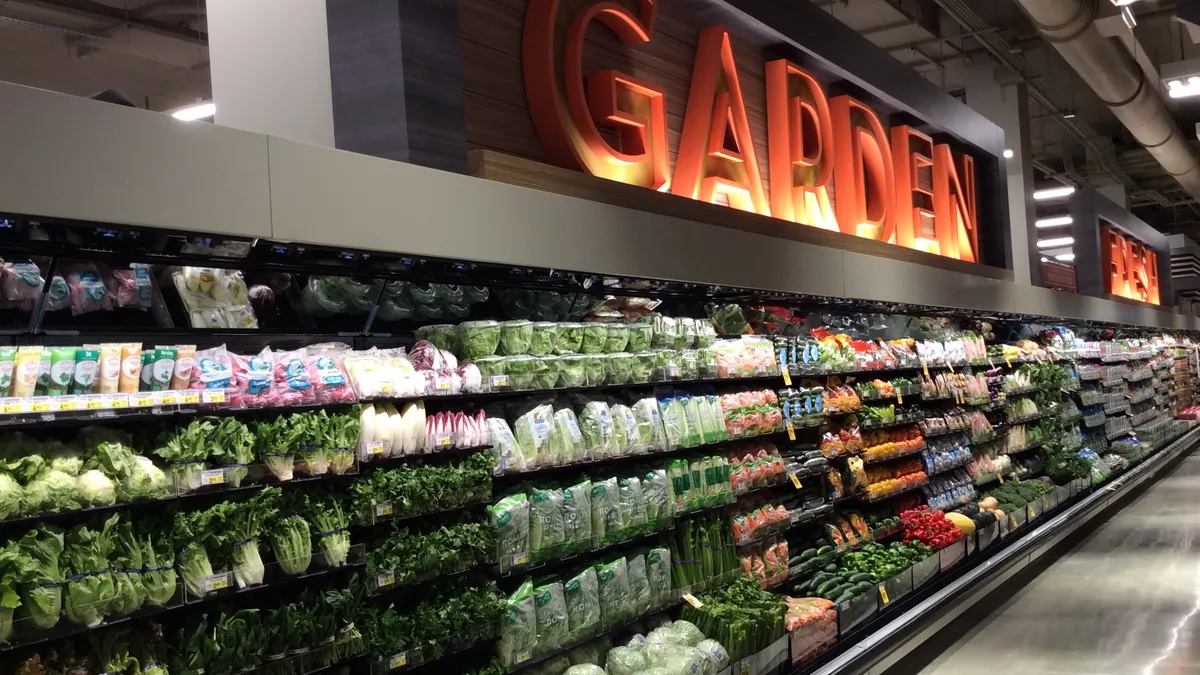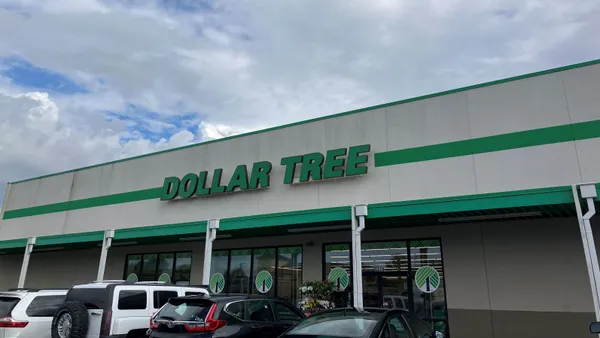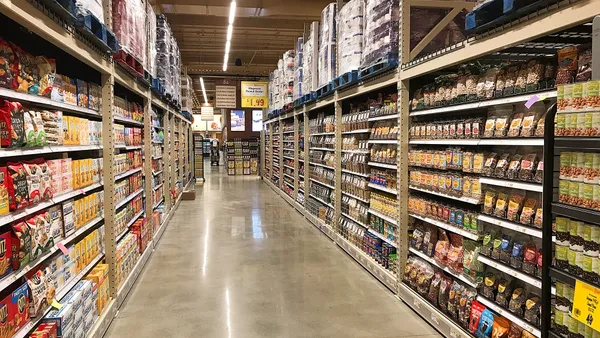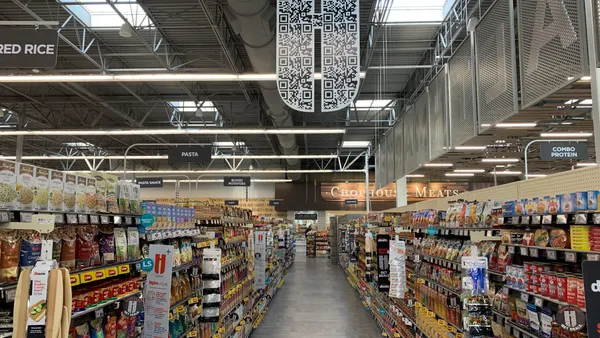Dive Brief:
- Shoppers assign the most responsibility for higher grocery prices to government policies and actions — not grocers — according to survey results published last Thursday by research firm The Feedback Group.
- Consumers also believe supermarkets bring in profits that are far larger than they actually do, according to the survey.
- The data underscore the complex relationship between shoppers and food retailers that continues to unfold even as grocery inflation remains well off the double-digit levels it hit following the COVID-19 pandemic.
Dive Insight:
Even as grocery shoppers place the highest level of blame for rising grocery prices on factors outside retailers’ direct control, they are showing continuing signs of frustration with how supermarket operators have been handling inflation, The Feedback Group’s research shows.
Only 40% of the 1,150 consumers the firm surveyed in March agreed that the grocery store they shop at the most “is on my side” where inflation is concerned. That figure is even lower than the 48% of respondents who told The Feedback Group they felt that way in a similar survey the firm fielded last June.
Shoppers who participated in The Feedback Group’s latest survey also had a dim view of how grocers have explained price increases, with only about a third agreeing that “my primary store is good at communicating why product prices have risen in the past few years.”
“These insights reveal a significant opportunity for supermarkets to enhance communication and align consumer perceptions with the economic realities of the industry,” Brian Numainville, principal at The Feedback Group, said in an email.
Participants in the research said they believed that product manufacturers and suppliers were nearly as responsible for grocery inflation as governments. Respondents also placed wars and worldwide political conflicts ahead of grocers when asked to rank the factors they believe have pushed grocery prices up, but put food retailers ahead of factors such as labor shortages, climate change, and activities by farmers and growers.
The federal government, meanwhile, has said that retailers are a key reason shoppers are dealing with higher prices, with the Biden administration saying recently that grocers should do more to bring grocery costs down for consumers.
The Feedback Group’s most recent survey indicates that shoppers have toned down their sense of grocer’s profitability, but not by much. Participants in the survey said they think grocers have profit margins that are 31% on average, down from 35% last year and 33% in 2022, The Feedback Group found.
By contrast, grocers had net profits after taxes of around 2.3% in 2022, according to data from FMI — The Food Industry Association.
The Feedback Group’s surveys show that a fast-growing proportion of shoppers have stepped up their reliance on sales and eat more at home than in restaurants to deal with inflation, with more than 60% of respondents to the firm’s most recent poll indicating they have taken those measures.
The shares of respondents who have cut down on impulse buys or look at a retailer’s weekly circular to develop their shopping lists were also up markedly in 2024, according to the research.












